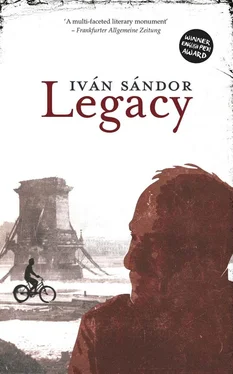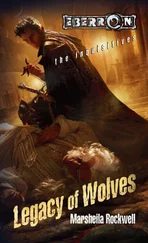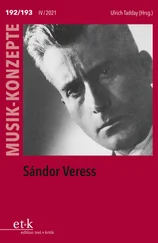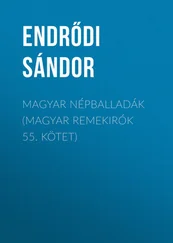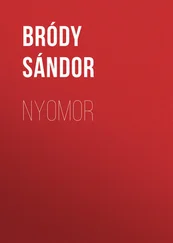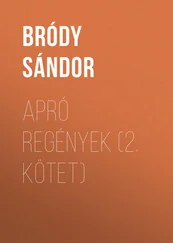Have you got a ciggy? A lanky boy, probably a couple of years older than me, has come up.
I don’t smoke, I tell him. He has only recently got into the habit, but he hardly smokes because it ruins the voice. He is a singer with the chorus of OMIKE; 11he has already had solo parts with them. I used to have a season ticket for OMIKE concerts, I say. That’s where I heard baritone Andor Lendvai in Faust and Dezső Ernster, the bass, in Aïda . Did you enjoy Aïda ? Yes, I did, but I thought they would put on a full performance; they just lined up in evening dress on the stage. There was no acting, only singing. That’s what they call a concert perfor mance, he says. When there is no money for costumes or scenery or time for rehearsals they sing from the score. Ernster knew his part anyway; he had the role at the Opera House until he was kicked out. Gabriella Relle sang the role of Aïda, do you remember? I remember. I was standing in the second row on the right as an understudy. It could have been another performance that I saw. But I may have seen you.
In my mind’s eye I see a giant figure, his face like a statue. I have a seat in the eighth row on the right, and I am wearing brown corduroy trousers. Gabriella Relle is singing. But I am looking at the giant. In front of him is a short slim soprano so the giant’s chest is also visible — as broad as if it were a papier-mâché structure designed to make him look so enormous. The others have little or no makeup, but his eyebrows are pencilled, his face is powdered white and his lips are very red.
I was heavily made up to make me look older, he says.
He does not have a winter coat on, just a rust-coloured pullover — his chest just as impressive as it had been on the stage, his eyebrows bushy even without any make-up.
Aren’t you freezing without a coat?
No, my body temperature is fine. It’s a genetic endowment, know what I mean?
I get it, I say, even though it’s the first I’ve heard of it.
Did you see Don Giovanni ? I did. Well, it could be you saw me in that, too, another role I understudied for. I was the Commendatore. They had to switch it to baritone range for me. Vilmos Komor conducted.
If you were the Commendatore, then I was a bit scared of you.
He has a recent wound on his chin, pink in colour.
Your chin was much the same as now only grey.
That was a fake scar. Your coat would suit my needs very well, though. Would you consider swapping? I can trade it for a revolver.
It’s not up for a swap, I say, and I don’t want a revolver anyway.
He says that he has two revolvers, and it could be he’ll make use of them if that’s how things work out.
I ask him if he had used them already.
He had wanted to, but his friends would not let him; that was why he had the wound on his chin.
At this juncture the German panzer squeaks in front of the house on its way to the Outer Circle. Aeroplanes are approaching again. I say, I’m going back into the cellar. It’s senseless to cram in with all those shit-scared Jews, he says; it’s safer here. Pannónia Street is narrow; any bombs are going to fall on the roofs. They crash through two or three storeys. Here on the street only the bomb blast is dangerous. It’s best not to stand in the doorway. He asks where I had been holed up, like that, and I tell him in Red Cross homes, in the hospital and now here with my parents. After some reflection I add, With my younger sister, too. They’re downstairs in the cellar. He says he is an orphan. I don’t say anything. He says his parents were taken away from his native town of Szolnok during the summer; he had been staying with relatives here in Budapest because of the singing.
Do you know where they died?
We got the news in from the Jewish Agency on Vadász Street. It’s ninety-nine per cent sure that the Szolnokers bought it.
I was in Vadász Street myself, I say, but I left.
Bombs are falling.
He had stayed on there, even got a job. The day before yesterday Arrow Crossers broke in. We had organized armed resistance, he says, but they banned that. The leadership was terrified. Maybe they were right, because if we had started shooting the Arrow Crossers would have wiped out three thousand. As it was they only took away a couple of dozen men, although they shot Arthur Weiss on the spot, right in front of the main gateway.
I don’t know who Arthur Weiss is.
The house belonged to him. It was he who kept in contact with the Swiss. He gave them the addresses of the houses to be put on the protected list, including this one.
When he heard that Arthur Weiss had been shot dead, he says, he stood at the front gate and took out the pistol, but the chief of the guards at the gate, who was a weightlifter, had grabbed hold of him and wrestled with him, causing him to fall and crack his chin against a sharp stone, which is how he had got the wound.
The anti-aircraft batteries by Margit Bridge were now in action, and bursts of fire could also be heard from over by the Comedy Theatre.
I ask him how he got over here from Vadász Street.
With difficulty, mate. There are now rolls of barbed wire on the Outer Circle as well.
He had gone through the sewer system.
There are some good hiding places down there. You’ll see in two or three days when fighting starts in the sewers. Give me a shout if you have second thoughts about the pistol.
The sirens sound the all-clear.
When the war is over Vilmos Komor is sure to be engaged by the Opera House, he says, Ernster as well. It would be great to get in there.
Like I said, I’m going back to the cellar. My parents are probably starting to get anxious.
No wetting yourself, or you’ll be done for.
He takes a deep breath, filling his lungs with air. He lifts his eyebrows and presses his lips together. He can see I find that terrifying and laughs out a scale, which is even scarier.
The water-carriers return.
Water that is boiled by women to use for cooking is kept in one of the barrels in the yard. The firewood is chopped by whoever is in the designated team; today crates are to be chopped up. Drinking water is poured from the buckets into pitchers. One person per family is allowed to queue up, and 200 millilitres per head is measured out, with the warden appointing those who keep check.
I am able to move along in the cellar without stepping on anyone in the dark. The flames of the lamps only throw light for a few metres; consequently that make the rest of the cellar even darker. I lead Mother out by the hand. She obtains a cooking pot from the warden’s wife and queues up for water, the four of us getting almost three-quarters of a litre. Now, carrying a full vessel, the route back is trickier. I think I might have stepped on someone, and I expect to be yelled at, but there is no yell; of course. The person might be very ill, even dead, I suppose. I have a word with the doctor wearing the Red Cross armband who goes over to the place. There is, indeed, a corpse lying there. The warden is called for, and he makes arrangements. There is a team of corpse carriers; two of them lift up the dead person and carry the body away. One of the carriers is Baritone, and it now occurs to me that we had not even properly introduced ourselves.
As far I can tell Vera is in a good place between Mother and Father. The physicist waves, so I sit back down beside him on the sack of potatoes. He lights a candle and explains to those around us how much oxygen is consumed by a burning candle in a voice exactly like my physics tutor in our lessons at school, so the end result, he says raising a finger, is minimal oxygen consumption while helping with the lighting.
I ask him from where he got the candle. He leans over with a face just like Father’s when he is going to crack a joke. Father’s face is oval, although admittedly the skin on his neck and around his mouth is sagging a bit. The physicist has a long face, and when he grins every wrinkle quivers. His expression is picaresque — that’s a word I had learned in Hungarian literature lessons — I had even read some picaresque novels, and thinking about that helped take my mind off the dead person who had just now been carried away. If you must know, I pinched it, says the physicist. It wasn’t easy, but I found a way. He chortles soundlessly and gently pokes me with an elbow. He then produces a pocket chess set, notebook and pencil and by the light of the candle starts jotting things down. There’s a combination that he’s puzzling over, he says.
Читать дальше
